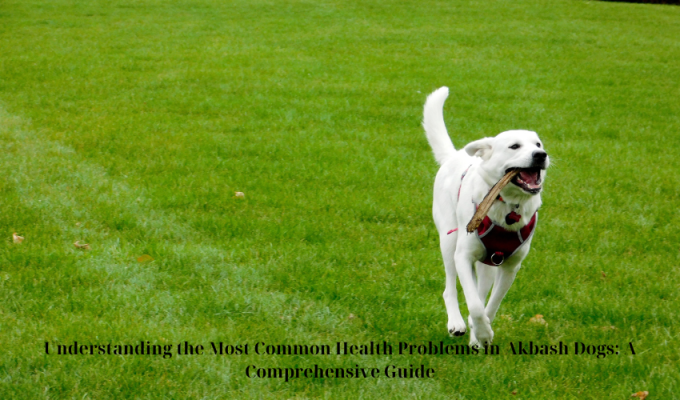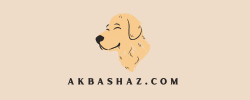Uncover the secrets to caring for Akbash puppies from a young age in our ultimate guide. Discover the essential tips and techniques for raising a happy and healthy Akbash puppy from the start.
Introduction to the Akbash breed
The Akbash is a large and powerful breed of dog that is known for its protective nature and loyalty to its family. Originating from Turkey, the Akbash was originally bred as a livestock guardian dog, tasked with protecting herds of sheep from predators such as wolves and bears. As a result, the Akbash is known for its strong protective instincts and its ability to make quick decisions in high-pressure situations. Despite its imposing size and protective nature, the Akbash is also known for its gentle and calm demeanor, making it a great companion for families.
Physical Characteristics
The Akbash is a large breed, with males typically standing between 28-34 inches at the shoulder and weighing between 90-130 pounds. Females are slightly smaller, standing between 27-31 inches and weighing between 75-105 pounds. The breed has a strong and muscular build, with a broad head, deep chest, and a medium-length tail. The Akbash has a thick, double coat that can come in a variety of colors including white, cream, and biscuit. Their coat is weather-resistant and requires regular grooming to keep it in good condition.
Overall, the Akbash is a unique and fascinating breed with a rich history and a strong sense of loyalty. Whether used as a working dog or a beloved family pet, the Akbash’s protective nature and gentle demeanor make it a wonderful addition to any home.

Understanding the needs of Akbash puppies
Akbash puppies have specific needs that should be understood in order to properly care for them. These large, independent dogs require early socialization and training to ensure they grow into well-adjusted adults. It is important to provide them with plenty of space to roam and explore, as they are natural guardians and need to feel a sense of territory. Additionally, Akbash puppies need a consistent and firm but gentle hand in training, as they can be strong-willed and independent.
Socialization
Early socialization is crucial for Akbash puppies to help them develop into well-mannered adult dogs. Exposing them to different people, animals, and environments from a young age can help prevent behavioral issues such as fearfulness or aggression. It is important to introduce them to a variety of experiences in a positive and controlled manner to build their confidence and social skills.
Exercise and space
Akbash puppies are active and energetic, so they require plenty of exercise and room to move around. Providing them with a large, securely fenced yard or ample outdoor space is essential for their well-being. Daily walks, playtime, and mental stimulation are also important to keep them physically and mentally engaged. It is important to ensure that they have a safe and secure environment to explore, as they have a natural instinct to roam and protect their territory.
Training methods for young Akbash puppies
When it comes to training young Akbash puppies, it’s important to start early and be consistent. Positive reinforcement is key when training these intelligent and independent dogs. Using treats, praise, and toys as rewards can help motivate them to learn and obey commands. It’s also important to socialize Akbash puppies from a young age, exposing them to different people, animals, and environments to help them become well-adjusted adults. Consistent training and socialization will help young Akbash puppies grow into well-behaved and confident adult dogs.
Basic obedience training
One of the first steps in training young Akbash puppies is teaching them basic obedience commands such as sit, stay, come, and heel. Using positive reinforcement and consistency, these commands can be taught through short, frequent training sessions. It’s important to be patient and understanding, as Akbash puppies may be independent and take longer to learn compared to other breeds. Training should be done in a calm and quiet environment to minimize distractions and help the puppy focus on the task at hand.
Leash training
Leash training is essential for young Akbash puppies to ensure they can be safely and comfortably walked in public spaces. Using a harness and a lightweight leash, introduce the puppy to the equipment gradually, allowing them to get used to the sensation of wearing a harness and being led by a leash. Start with short walks in low-distraction areas, gradually increasing the length and complexity of the walks as the puppy becomes more comfortable. Positive reinforcement and patience are key in leash training, as it may take time for the puppy to adjust to walking on a leash.
Health and grooming tips for Akbash puppies
Health tips
To ensure the health of your Akbash puppy, it’s important to schedule regular veterinary check-ups. This will help to catch any potential health issues early on and ensure that your puppy receives all necessary vaccinations. Additionally, providing a balanced diet and regular exercise is essential for maintaining your Akbash puppy’s overall health. Be sure to monitor your puppy’s weight and adjust their diet as needed to prevent obesity, which can lead to various health problems.
Grooming tips
Akbash puppies have a thick, double coat that requires regular grooming to keep it in good condition. Brushing your puppy’s coat at least once a week will help to prevent matting and reduce shedding. Additionally, regular baths and nail trims are important for keeping your Akbash puppy clean and comfortable. It’s also important to regularly check and clean your puppy’s ears to prevent ear infections. Finally, be sure to brush your puppy’s teeth regularly to maintain their dental health.
Creating a safe and stimulating environment for young Akbash puppies
When it comes to young Akbash puppies, creating a safe and stimulating environment is crucial for their development and well-being. This begins with providing a secure and enclosed space for them to explore and play, such as a fenced-in yard or designated puppy area indoors. It’s important to puppy-proof the environment by removing any potential hazards, such as toxic plants, small objects, and electrical cords, to ensure their safety. Additionally, providing stimulating toys and activities, such as puzzle feeders and interactive games, can help keep young Akbash puppies mentally and physically engaged.
Creating a safe space
One of the first steps in creating a safe environment for young Akbash puppies is to provide a secure and enclosed space for them to play and explore. This can be achieved by setting up a fenced-in yard or using baby gates to create a designated puppy area indoors. By limiting their access to potentially dangerous areas, such as the kitchen or stairs, you can help prevent accidents and keep them safe.
– Use baby gates to block off any areas that may pose a risk to young puppies
– Remove any toxic plants or substances from the environment
– Ensure that there are no small objects or choking hazards within reach of the puppies
– Provide plenty of soft bedding and a cozy den-like space for the puppies to rest and feel secure
– Supervise their interactions with other pets and children to ensure a safe and positive environment
Building a strong bond with your Akbash puppy
Building a strong bond with your Akbash puppy is crucial for their development and your relationship with them. One of the best ways to do this is through positive reinforcement training. Use treats, praise, and playtime to reward good behavior and establish trust with your puppy. Consistency is key in training, so be sure to set clear boundaries and stick to them. This will help your Akbash puppy understand what is expected of them and create a sense of security in your relationship.
Socialization
Socialization is also an important aspect of building a strong bond with your Akbash puppy. Expose them to a variety of people, animals, and environments from a young age to help them feel comfortable and confident in different situations. This will also help prevent any potential behavioral issues in the future. Take your puppy on walks, to the park, and to meet other friendly dogs to help them develop positive social skills.
By incorporating positive reinforcement training and socialization into your routine, you can build a strong and trusting bond with your Akbash puppy. Remember to be patient and understanding as your puppy learns and grows, and always prioritize their well-being and happiness. With time and effort, you will create a deep and lasting connection with your furry companion.
Troubleshooting common issues with young Akbash puppies
1. Excessive chewing and biting
One common issue with young Akbash puppies is their tendency to chew and bite excessively. This behavior is natural for puppies as they explore their environment and relieve teething discomfort. To address this issue, provide your puppy with appropriate chew toys and redirect their attention whenever they start to chew on inappropriate items. Consistent training and positive reinforcement can help discourage this behavior over time.
2. Separation anxiety
Young Akbash puppies may experience separation anxiety when left alone, leading to excessive barking, destructive behavior, and distress. To help alleviate this issue, gradually acclimate your puppy to being alone by starting with short periods of separation and gradually increasing the time. Provide your puppy with a comfortable and secure space, such as a crate, and leave them with engaging toys or treats to keep them occupied. Additionally, practicing a consistent routine for leaving and returning home can help reduce anxiety.
3. Leash pulling and walking difficulties
Akbash puppies are known for their independent and strong-willed nature, which can lead to challenges with leash pulling and walking. To address this issue, start leash training at an early age and use positive reinforcement techniques to encourage good walking behavior. It’s important to be patient and consistent with training, as well as to provide plenty of mental and physical stimulation for your puppy to help them focus and release excess energy. Seeking guidance from a professional dog trainer may also be beneficial in addressing leash pulling and walking difficulties.
In conclusion, caring for Akbash puppies from a young age requires patience, consistency, and a loving environment. Providing proper socialization, training, and healthcare will set the foundation for a happy and well-adjusted adult dog. Start early and be committed to their well-being for a lifetime of companionship.

